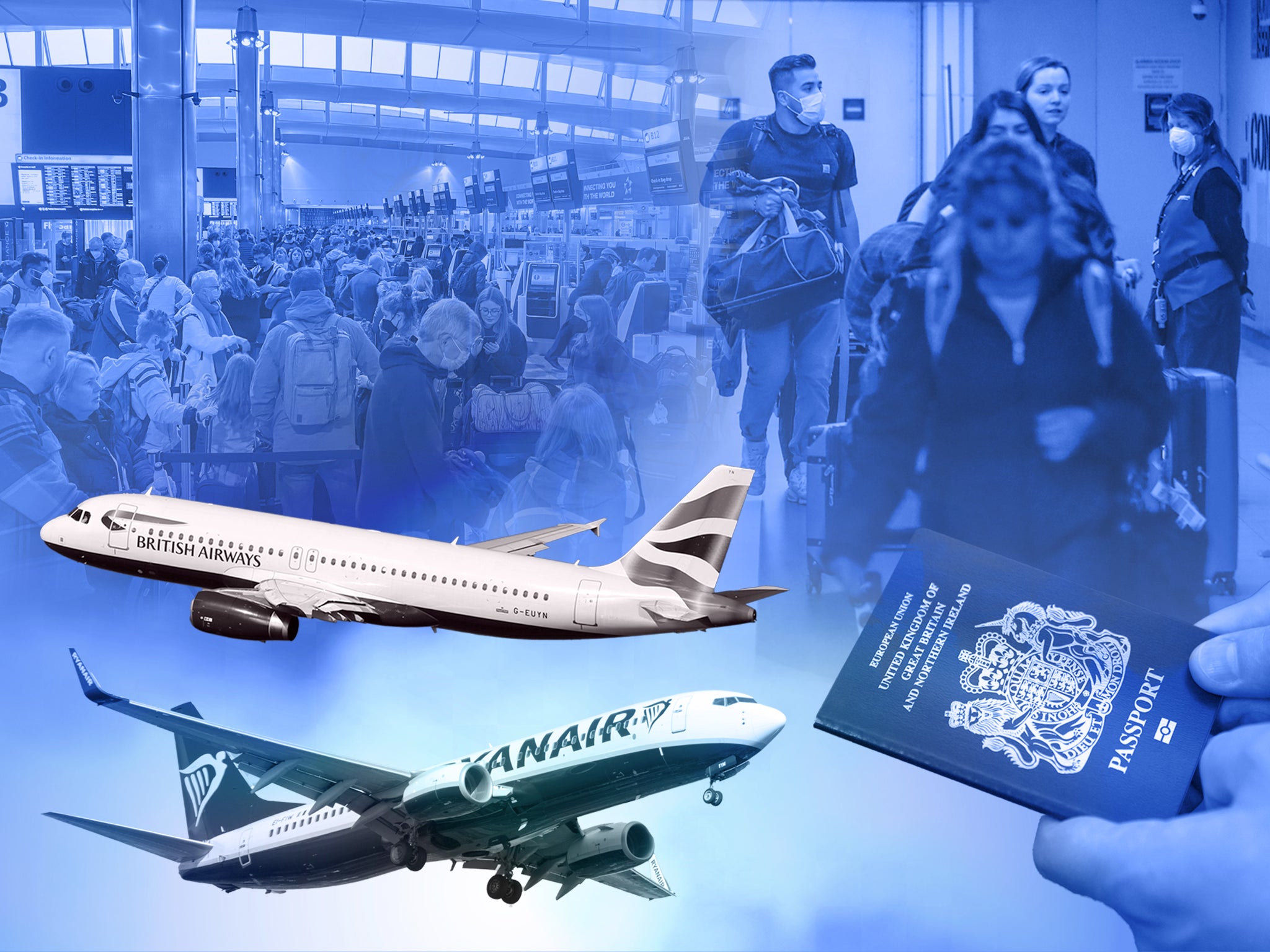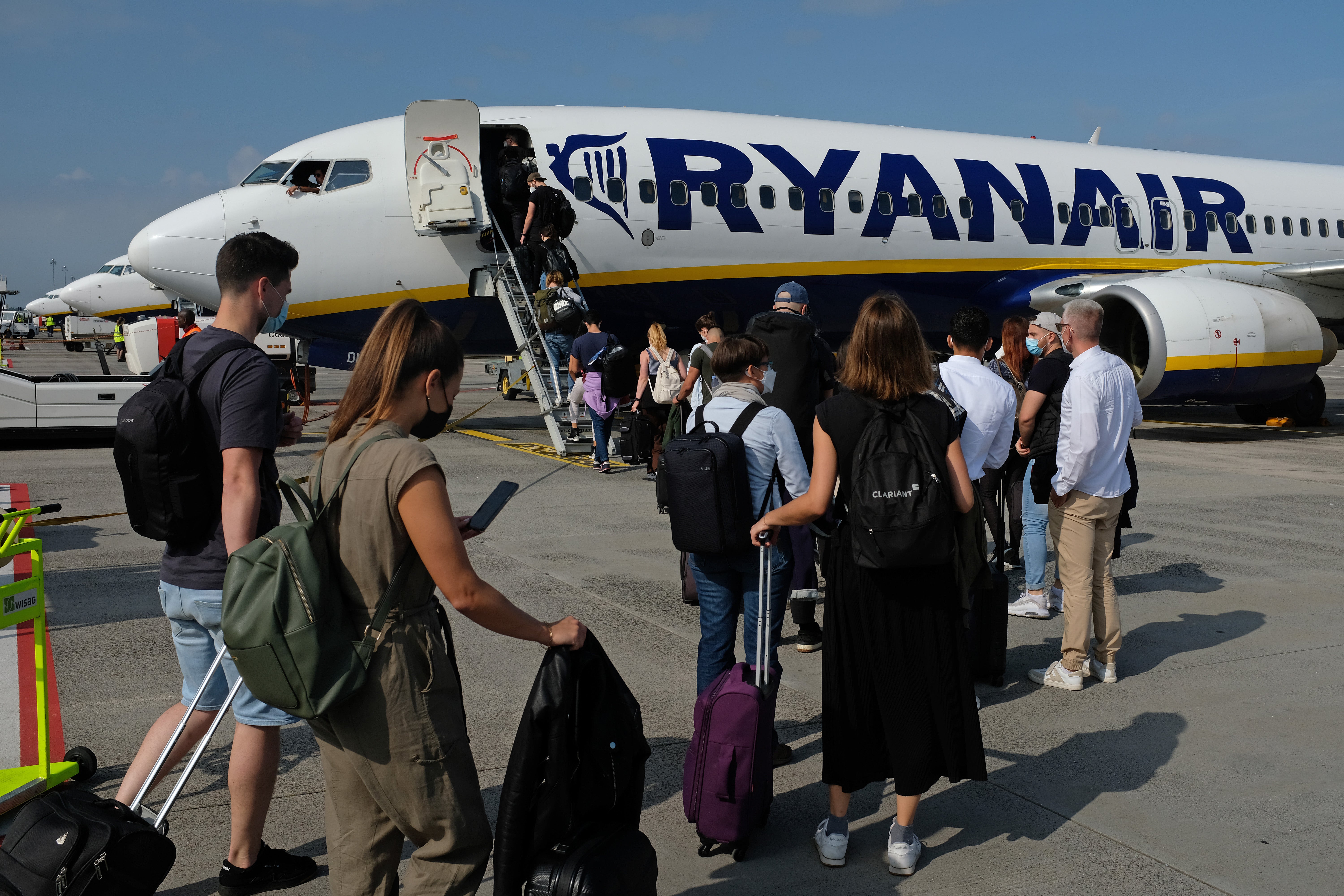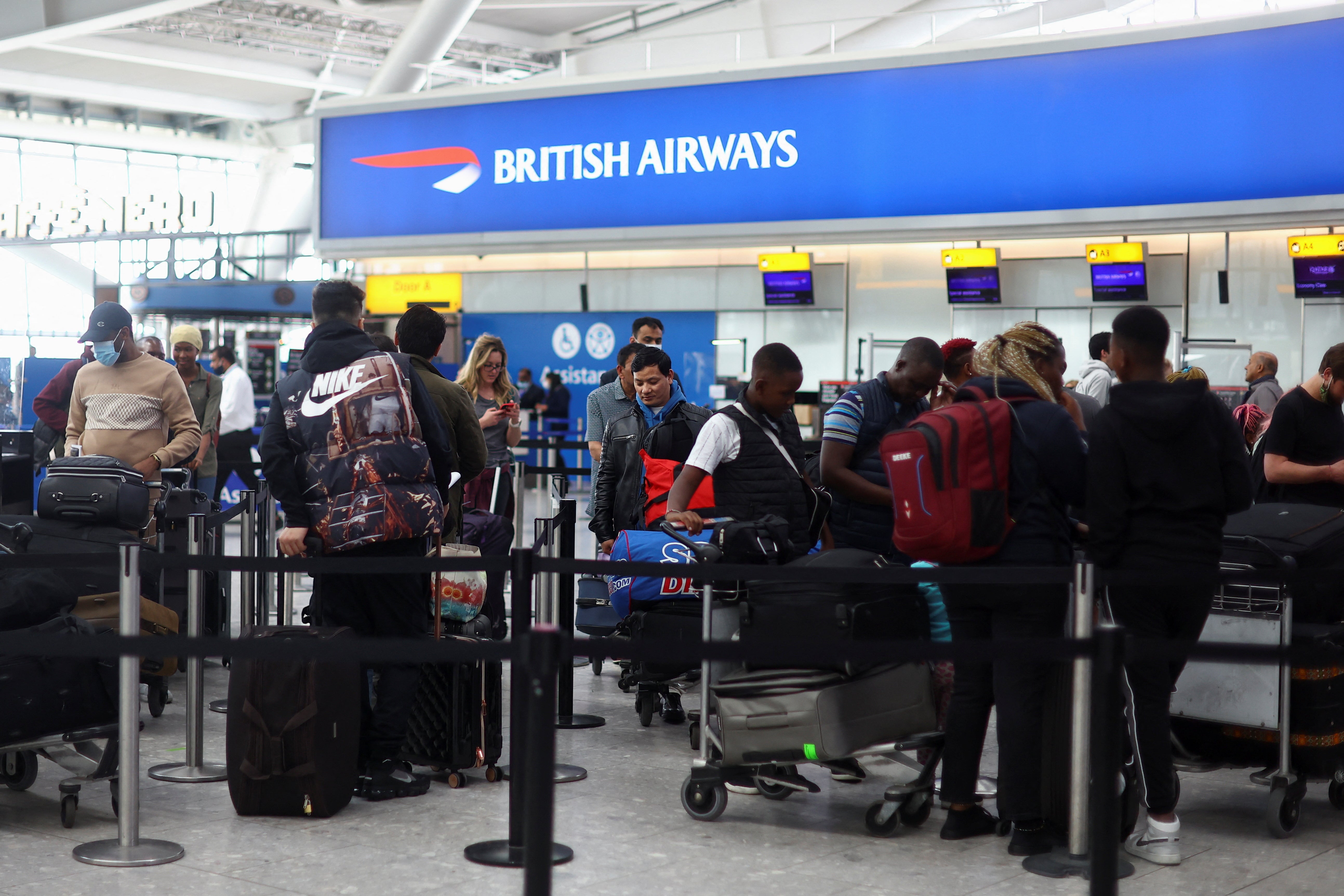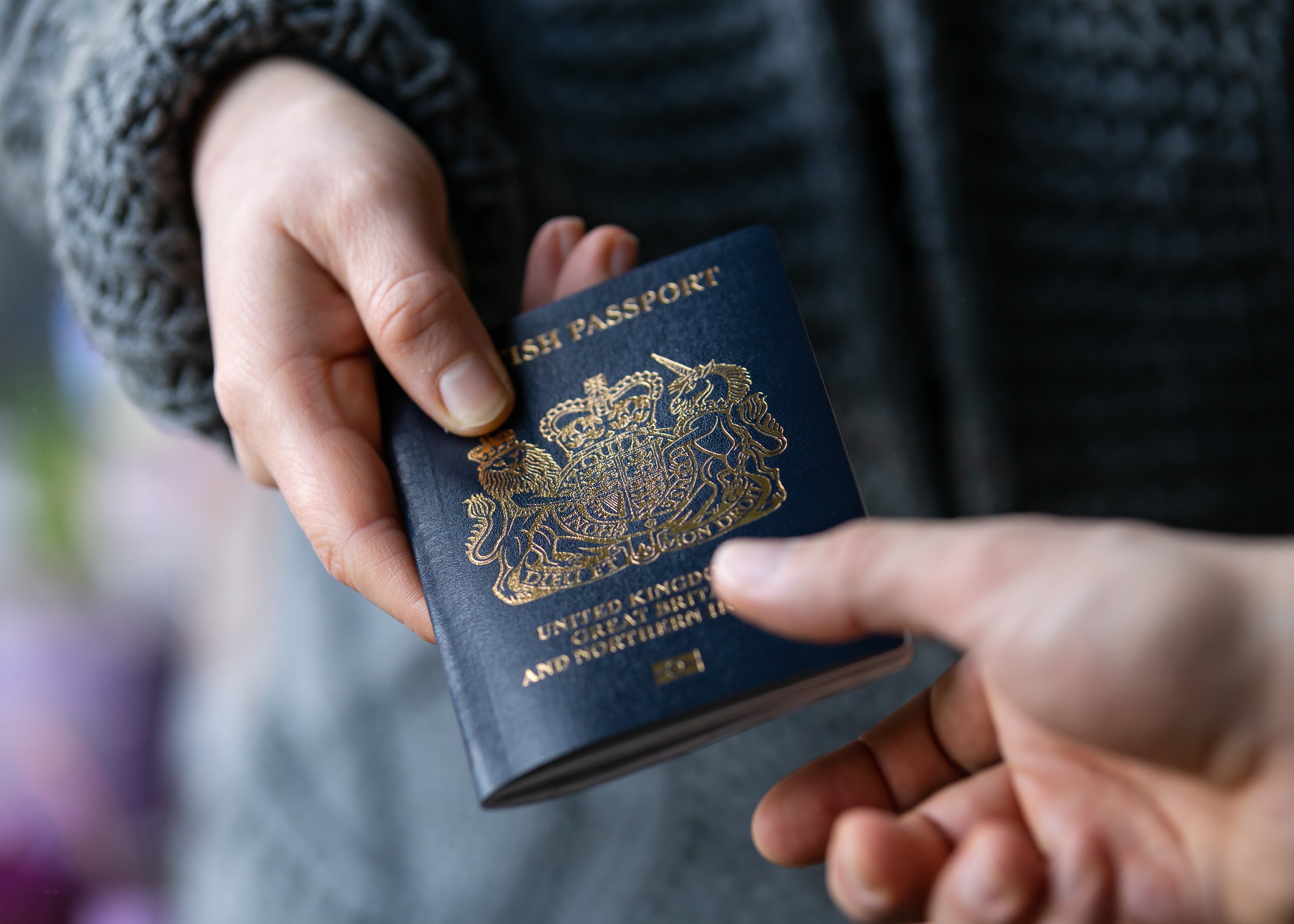Now is the summer of our holiday discontent
Travel may be back on the menu but we’ve a long way to go for a post-Covid, post-Brexit equilibrium – expect this summer to be a bit chaotic, writes Simon Calder


Exploration, that essential human urge, has been suppressed for two full years. Exactly 24 months elapsed between the Foreign Office warning against all overseas travel, on 17 March 2020, and the relaxation of all UK coronavirus rules for incoming travellers.
Throughout that dismal two years, ministers had imposed dozens of incoherent, irrational and expensive travel restrictions. Every day, the UK’s aviation sector and wider travel industry had protested that the measures were damaging and ineffective. “Set us free,” they begged.
The objections from airlines and holiday firms turned out to be spot on: the Transport Select Committee would later describe the ever-changing UK rules as “opaque, ambiguous and inconsistent”, with hotel quarantine highlighted as completely ineffective.
The government boldly claimed the opposite, that all the travel restrictions – including PCR tests, the red list and notorious “amber plus” travel ban on France – were essential and were kept in place no longer than necessary. But their futility was immediately confirmed with the assurance: “In future, the government’s default approach will be to use the least stringent measures, to minimise the impact on travel as far as possible and these will only be implemented in extreme circumstances.”
This moral victory for a grievously wounded travel industry was accompanied by newfound freedom. After enduring more complex and costly restrictions than any other European country, the travel industry suddenly found itself in a position to take people away without them fearing being thrust into an airport hotel for 11 nights at the drop of a variant on their return.
Predictions from travel bosses are often characterised by a combination of wishful thinking and what they believe the markets want to hear. Yet forecasts of a surge in sales as travellers make up for lost sunshine turn out to have been correct.

“There’s so much pent-up demand from families for holidays,” says Michael O’Leary of Ryanair. “They’ve been locked up for 18 months or two years. There is certainly going to be a very strong return to the beaches of Europe this summer.”
His words are echoed by Johan Lundgren, chief executive of easyJet, who speaks of “a big pent-up demand across the network – stronger in the UK than elsewhere”.
And to complete the trinity of CEOs from mighty airline groups, here’s Luis Gallego, chief executive of British Airway’s parent company, IAG: “The welcome removal of UK’s stringent travel restrictions, combined with strong pent-up demand, have contributed to a steep ramp up in capacity.”
If people booked to fly at, say, 9am, decide to turn up at 5am to guarantee they will make the flight, they may inadvertently – and literally – stand in the way of passengers booked on 7am departures
Be careful what you wish for. Absence from the beaches of Europe, the theme parks of Florida, the temples of Asia and the unmitigated bling of Dubai has certainly made our hearts grow fonder. But “pent-up” carries connotations of frustration. And, my, there is plenty of that about.
As soon as you walk through the door to any airport, you may encounter evidence of the chronic staff shortage in aviation. In order to function, aviation requires a vast number of skilled, security-cleared people who don’t mind working extremely anti-social hours in a high-stress environment. With the severe slump in business brought about by government travel restrictions, airports and airlines lost hundreds of thousands of experienced staff. Some great people retired; many young professionals returned to their European homelands and have not been tempted back to Brexit Britain; and others found work where they were less likely to be sworn at by overstressed passengers at 5am.
In a job market where demand outstrips supply, enticing people into the travel industry has never proved tougher. It has always been a relatively low-wage sector; and while perks such as free or nearly free flights previously worked wonders, their value has steadily been eroded by the growth of budget airlines – who themselves are not noted for overpaying staff.

Having said that, the most notable resource shortages are happening at British Airways (BA). Each day this week, the carrier has cancelled between 120 and 130 short and medium-haul flights. On Friday, for example, three out of four round trips from London Heathrow to Bologna were axed. BA says the cuts are made pre-emptively and that passengers are given a week or two of notice.
For our national carrier to scrap one-tenth of its planned schedule in a day would, in normal times, constitute a massive story – and yet it is happening day in, day out. The daily cull takes at least 20,000 seats out of the market, reducing choice and increasing fares on the surviving flights.
One silver lining – besides the obvious environmental benefits – is that security queues at Heathrow are shorter than they might otherwise be, and arriving an hour earlier just to contend with the possibility of long lines is unnecessary. At other major airports, you may not be so lucky.
“We’re encouraging all our customers to show up earlier, to allow more time to get through airport security, particularly in Manchester,” says O’Leary of Ryanair.

The fact that on one day earlier this month, 23 of Birmingham airport’s 7,500 passengers failed to make their flight because of the length of security lines might make you feel better: that is just 0.3 per cent of the throughput. But human nature, particularly at a time of uncertainty, is likely to come up with the opposite reaction: a determination not to be one of those unfortunate 23.
Passengers fretting after seeing adverse publicity about queues can actually make the whole thing self-fulfilling. If people booked to fly at, say, 9am, decide to turn up at 5am to guarantee they will make the flight, they may inadvertently – and literally – stand in the way of passengers booked on 7am departures. And the rational response of those first-wavers? Let’s get there at 3am, just to be sure. Post-pandemic travel can feel more like a punishment than a joy at times.
Not everyone will even get as far as the airport this summer, I fear, as we feel the full impact of Brexit for the first time. HM Passport Office is warning that travellers should allow 10 weeks for a passport to be issued or renewed. What, you may wonder, is the connection with leaving the European Union?
The world has indeed gone mad when a travel journalist is pleading with ministers and giant travel companies to align with the law as applied by Brussels for entry to the EU and wider Schengen area
One element is the UK’s choice to give up the former certainty of being allowed to remain anywhere in the EU up to and including the day of expiry of your passport. Since we asked to become subject to the rules for “third country nationals”, British passports have had to pass two tests for be valid to travel to Europe:
On the day of arrival in the EU, was your passport issued less than 10 years ago?
On the intended day of departure from the EU, will your passport have at least three months remaining?
These two conditions are independent of each other – so a British traveller to Europe with a passport issued on 2 June 2012 that expires on 2 December 2022 can enter any time up to 1 June 2022.
The need to comply with these rules has added to the surge of renewals. Scandalously, though, the wanton and widespread misinterpretation of the rules has resulted in many people applying for new passports when their current documents are perfectly valid.
“Anyone who has got a trip booked to Europe or beyond please check your passport validity,” reads one message on a travel agent’s Facebook page. “Most countries need at least six months of validity from your date of return. Any extra months accrued if you have applied for a passport early.... are NO LONGER accepted. Please calculate your expiry date to be 10 years (5 for kids) from the ISSUE DATE.”
I have asked for this and similar nonsense to be taken down – but it took until this month for both Europe’s biggest budget airline, Ryanair, and the Foreign Office to accept the actual European Commission regulations. In the face of all the evidence that I repeatedly presented them with, the UK government and giant companies continued to insist there was some uncertainty about whether the two conditions were “cumulative” – leading them to apply needlessly onerous rules.

The world has indeed gone mad when a travel journalist is pleading with ministers and giant travel companies to align with the law as applied by Brussels for entry to the EU and wider Schengen area. It’s difficult to assess just how many people have been adversely affected by the collective madness, but I fear it may turn out to trigger a PPI-like deluge of claims against airlines and holiday companies for the financial and emotional harm caused by their misinformation.
With this fog of stress and uncertainty, it would be easy to lose touch of the joy of travel. Yet as soon as you feel the sand between your toes, feel the warmth of the sun and the welcome, and feel the tensions of quotidian life melt away, the rewards of international travel will return. Yes, there will be many bumps along the long and winding road to post-Covid, post-Brexit equilibrium. But that view from the taverna table makes the investment worthwhile.
I shall be exploring Europe and beyond more enthusiastically than ever this summer, and hope to meet you along the way – with the traveller’s constant guarded optimism of hoping for the best while preparing for delays and disruption.
Just one word of warning if you are thinking of going anywhere near an airport on the second Friday in August. John Grant, schedule analyst at OAG, says: “It looks like the 12 August will be the busiest day of the year for capacity.” He calculates that 16.1 million seats are on offer worldwide for that date – which corresponds to one easyJet or Ryanair-sized plane taking off somewhere in the world every second. The world is back – but the planet may not thank us for our relentless exploration.




Join our commenting forum
Join thought-provoking conversations, follow other Independent readers and see their replies
Comments